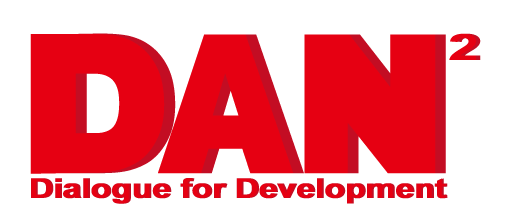Dan2

Your Venue for Intellectual Exploration and Personal Growth
Concept:
This is a venue aimed to serve intellectual stimulation and personal growth. We want to foster an environment of open communication where one can share and get support on intellectual developmental, discuss concepts and ideas, and get feedback and accountability on important projects.
Whether you’d like to share your pursuit of a topic of academic interest or a project for personal development and growth, don’t hesitate to take part in either of the forums. Communication should always be open-minded, so please seek to be an active and non-biased listener, aim first to understand before being understood, and be honest.
Background:
This concept of dialogue grew from two Dan’s struggles in China; Daniel A. Janssen and Daniel McCool found the need for intellectual stimulation. China is an underdeveloped country and hard to find people that think critically or deeply in life. Those that do think critically are few and far between and most do not speak English so people like these two Dan’s living in these kinds of conditions found themselves being starved for intellectual conversation and begun dialoging between each other.
While engaging in their weekly intellectual dialogue a conclusion arose to form a “foundation” of thought, some fundamental principles and values that apply in China and facilitate our personal problems. Most of us living in China have Chinese wives or girlfriends and find additional challenges understanding and navigating this very different culture. This led to a need to share our unique struggles and the idea of an anonymous platform being transparent with real life issues seeking feedback and ideas for others having similar struggles.
2 Dan’s x 2 Forums = Dan²:
- Dialogue: Intellectual Stimulation and Discussion:
a. Focus on intellectual dialogue to stimulate our minds and philosophy of life.
b. Refining our belief systems and coming to some base conclusions of reality. - Development: Personal Awareness Development:
a. Focus on solving personal issues and problems in life.
b. Promote ideas and applications to solve our problems and promote growth and change.
The Value of Dialogue
Plato’s Dialogues: Many dialogues accepted as authentic are skeptical about the written word as a medium for transferring knowledge and express a preference for oral transmission. Plato’s Phaedrus explains this position in detail. There the superiority of oral over written teaching for transmitting philosophy is grounded in the far greater flexibility of oral discourse, which is held to be a decisive advantage. Authors of texts cannot adapt to the level of knowledge and the needs of individual readers. Moreover, they cannot answer readers’ questions and criticisms. These are only possible in conversation, which is alive and psychologically responsive. Written texts are mere images of speech. Writing and reading are thought not only to lead to a weakening of our minds, but also to be unsuited for communicating wisdom, which can only succeed in oral instruction.
Source: https://en.wikipedia.org/wiki/Plato%27s_unwritten_doctrines
Dan² Philosophy on Dialogue:
‘Dialogue’ is defined as “a discussion between two or more people or groups, especially one directed toward exploration of a particular subject or resolution of a problem.” ‘dia-’ means ‘thoroughly’ or ‘completely’, while ‘-logue’ means ‘discourse’.
In order for the discourse to be ‘thorough’ or ‘complete’, open-mindedness and the ability to listen are essential. All ideas, whether initially perceived as wrong or unnecessary, should be listened to: If not at least to serve as a safeguard against the possibility that we may actually be wrong while thinking we are right, but to aid in the journey towards finding a greater truth. After all, ‘correct’ and ‘incorrect’ notions are diametrically related.
As the Confirmation Bias states, we can find almost any evidence in the world to support our claims. It therefore becomes essential, if we wish to come to any meaningful truths or conclusions in life, to seek like-minded and unlike-minded people alike with whom we can converse with. We must then develop a means of developing the skills of successful and meaningful dialogue.
We encourage you to stop watching the news, or following those useless social networking blogs and engage in “dialogue”. Pick a topic your passionate about and Dialogue with Dan, or someone else on this forum. Get into a subject and dialogue through to a result.
The Benefits:
The benefits can be huge depending on your sincerity and what you bring to the discussions. What we have experience so far are:
- Intellectual stimulation.
- Awareness raising.
- Opportunity to express intellectual ideas and concerns.
- Opportunity for Personal growth, development and or transformation.
- Opportunity to be Transparent with your views.
- Opportunity to be Accountable with your views.
- Find new applications for life’s issues.
- Develop your communication and expression skills.
- Develop your listening skills.
- Plain enjoyment of mental discussions.
- Refinement of personal thought.
- Clarity on goals and values.
- Help with discernment of different thoughts and ways of thinking.
- Help me to be more precise in my language and thought.
- Solve personal and or world problems.
- Raise perspective awareness. (Different people, different ways of thinking.)
- Development of dialoguing skills.
- Learning unbiased listening.
- Develop critical thinking skills.
Forums:
Topic 1: Mind-Body Problem
Discussing “The Hard Problem” and the emerging theories of consciousness.
References:
- Koch, Wallace, Greyson, Hoffman, Dennett, Chopra, Harris
Topic 1: 21st Century Skills
Discussion on how to setup our mind, bias awareness, draw baselines, discernment, critical thinking, and decision making.


Definitions key to discussions: